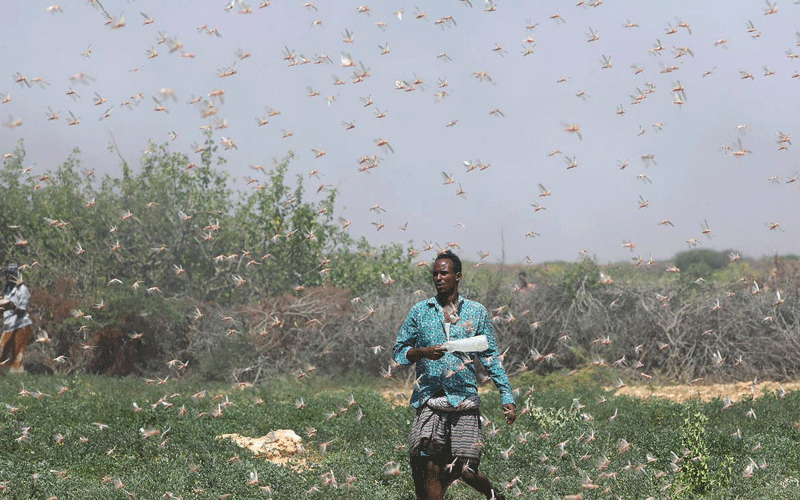Coronavirus, locusts harbingers of hunger

The country’s major focus is the battle against the coronavirus which has turned the lives of Kenyans upside down. There are concerns the effects on the economy will be devastating.
Key businesses have closed shop and sent employees home. This would have far-reaching consequences on family incomes.
Economic activities in key industries, including the agricultural sector, have been disrupted.
Trading at the Nairobi Securities Exchange (NSE), was hit as soon as the first case of coronavirus was reported, forcing some investors to dispose of their stake in panic. The total market capitalisation shrunk by Sh120 billion.
The tourism sector, one of the critical drivers of the economy, has been most hit, with dozens of hotels forced to close, a move largely attributed to the international travel restrictions.
The dwindling incomes and disruption of agricultural activities will have considerable effects on food security.
The matter is complicated by the invasion by desert locusts which affected various regions in the past four months.
The twin enemies
Already, there is an ominous warning about the food security status. Strategic Food Reserve chair Noah Wekesa has sounded the alarm the country may face a crippling food shortage. He says the grain stores have no stock.
The World Food Organisation has also warned of a possible second wave of locust invasion in six months, which may cause more destruction.
The agency says two new generations of locusts are set to descend on Eastern Africa in June, before heading to Asia.
And it is too late, according to FAO, to stop the locusts from spreading in less than six months.
The agency is also concerned the chemicals used to fight the locusts could kill wildlife and ruin food supplies. Despite the warning, East Africa seems unprepared to deal with the threat.
The Health ministry has indicated the battle against coronavirus is far from being won and that it could stretch into August.
Clearly, the virus and the locust invasion are twin enemies with a strong bearing on food security.
Experts have cautioned the post-Corona trauma will drain families and businesses as they struggle to regain their footing.
That is why the government must come up with measures to cushion thousands of families from the impending food shortage.













